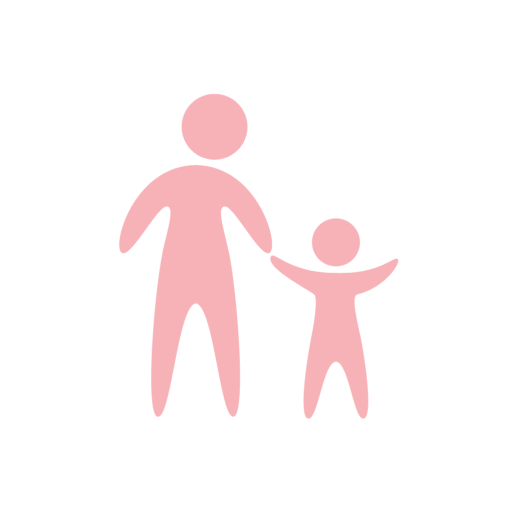Boundaries: 7 Best Ways to Protect Your Newborn’s Health
Welcoming a newborn into your world is both miraculous and fragile. These early days are a time when gentle care and protective routines make all the difference. Establishing loving yet firm Boundaries helps your baby grow safely while giving you peace of mind. From reducing exposure to germs to nurturing calm feeding and rest habits, every decision contributes to lasting wellbeing. Here are seven thoughtful ways to honor your baby’s space and health with grace and confidence.
1. Set Clear Boundaries Around Visitors
Visitors often come with love and excitement — but your newborn’s immune system is still developing. Politely let family and friends know that short, healthy visits are best in the first months. Encourage handwashing before contact and avoid visits if anyone feels unwell. A simple, respectful explanation about your baby’s health needs helps others understand these Boundaries aren’t restrictive, but protective. This early structure promotes comfort, balance, and safety for everyone involved.
2. Maintain a Safe and Calm Home Environment
Keeping your home organized, quiet, and clean forms the foundation of healthy living. Regularly sanitize high-touch areas like changing tables, toys, and feeding surfaces. Use gentle, non-toxic cleaning products and ensure proper ventilation. Calm lighting, soothing sounds, and minimal clutter create a peaceful energy that your newborn instinctively responds to. These physical and emotional Boundaries support a sense of security that helps your baby thrive.
3. Protect Feeding and Sleeping Spaces
Your baby’s feeding and sleeping areas should remain calm, private, and free from unnecessary disturbance. Whether you breastfeed or bottle-feed, choose consistent spots that feel safe and nurturing. Avoid feeding in crowded or noisy spaces, as babies can easily feel overstimulated. Similarly, dedicate a specific area for naps and nighttime sleep. These structured Boundaries create a predictable rhythm that soothes your baby and makes caregiving more peaceful and intuitive.
4. Prioritize Food Safety for Growing Health
Nutrition is central to your newborn’s development. For breastfeeding mothers, a balanced diet directly benefits the baby’s immune system and digestion. When the time comes to introduce solids, select fresh, pure foods that are gentle on tiny tummies. Wash produce thoroughly and avoid processed or salty items. Practicing proper food hygiene — like using clean utensils and separate cutting boards — strengthens your overall routine. For further insight into mindful family nutrition, explore TasteFlavorBook, which offers valuable advice on safe and nourishing meals for all ages.
5. Keep Distance from Strangers and Public Exposure
Public spaces can be overwhelming and full of germs. During your baby’s first months, it’s wise to limit crowded outings and unnecessary physical contact with strangers. Cover the stroller or carrier lightly to create a buffer from direct exposure, and avoid letting others touch your baby’s face or hands. These thoughtful Boundaries allow your baby to gradually adapt to the world while minimizing risk. Safety doesn’t mean isolation — it means pacing introductions at a healthy rhythm.
6. Respect Emotional Boundaries for Both Parent and Baby
Emotional protection is as vital as physical safety. Babies sense energy — if a parent feels rushed or anxious, they can reflect that tension. Take moments throughout the day to breathe, rest, and reset. Gentle lullabies, quiet cuddles, and consistent responses to cries help your baby feel secure. These emotional Boundaries encourage self-soothing and trust. Likewise, respecting your own need for rest and space allows you to give more meaningful, patient care in return.
7. Communicate Health Boundaries Clearly and Kindly
Some people may not understand why you’re cautious about visits or hygiene. Be honest yet gentle when explaining your approach: “We’re being extra careful to protect the baby’s health right now.” Simple, calm communication turns potential tension into shared understanding. Over time, loved ones will appreciate your consistency and your commitment to safety. When these social Boundaries are clear, everyone involved — including you — can relax and focus on love and support rather than conflict.
The Power of Graceful Protection
Setting Boundaries for your newborn is not about fear; it’s about wisdom. Each small choice — from handwashing to food safety, from quiet rest to clear communication — builds a foundation for health and harmony. Your baby learns security through your calm presence and consistent routines. These early limits evolve into lifelong lessons of respect, safety, and trust.
Parenting thrives on both intuition and knowledge. By honoring your instincts and following proven practices, you protect your baby while strengthening your bond. For additional parenting insights and balanced guidance, visit CoolParentingTips — your space for nurturing advice that grows with your family.
Care is love expressed through structure. Follow these Boundaries not as rules to restrict, but as gentle lines of protection where your newborn can grow safely, calmly, and freely.
Learn Bond Bloom

Helping Kids Emotions Without Overreacting
Helping Kids Emotions Without Overreacting

Family Connection Time Ideas For Busy Parents
Family Connection Time Ideas For Busy Parents

Positive Discipline Tools That Teach Responsibility
Positive Discipline Tools That Teach Responsibility













